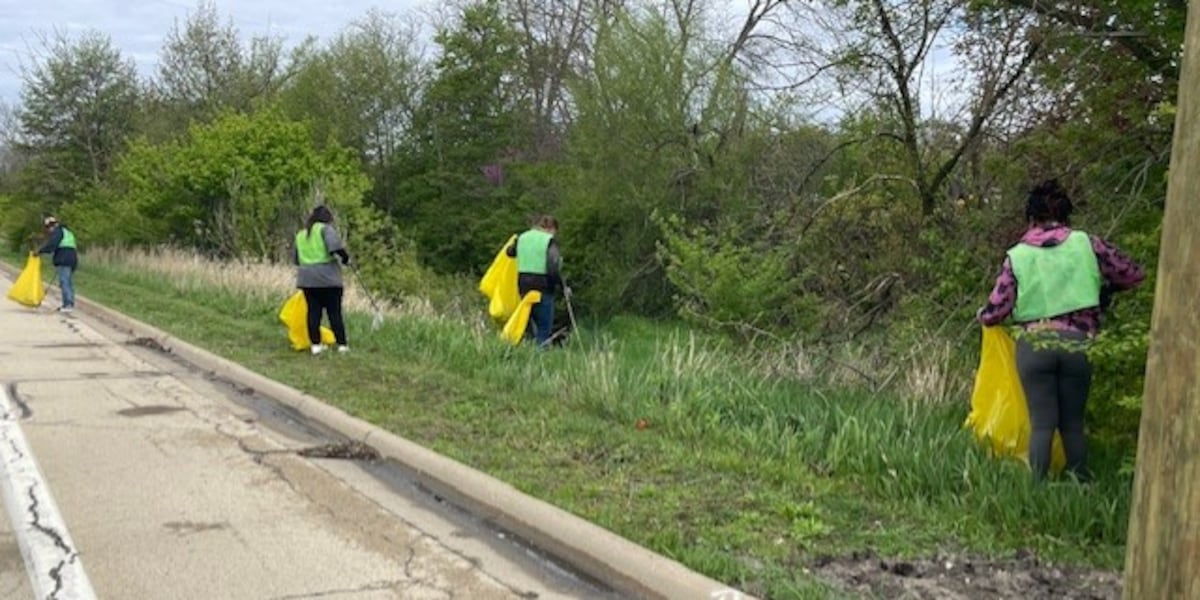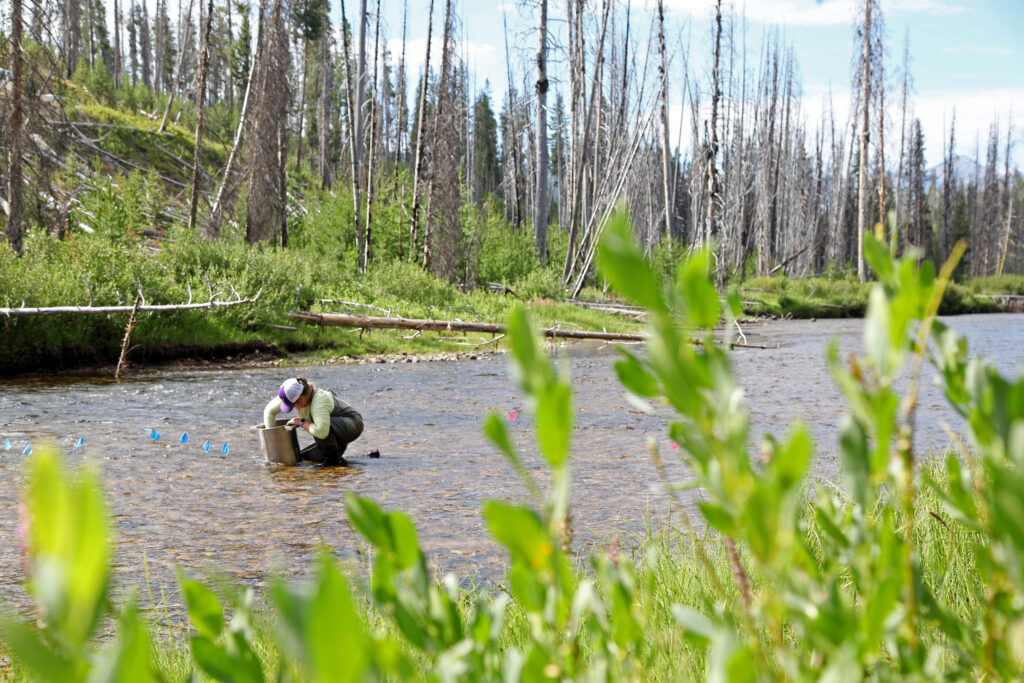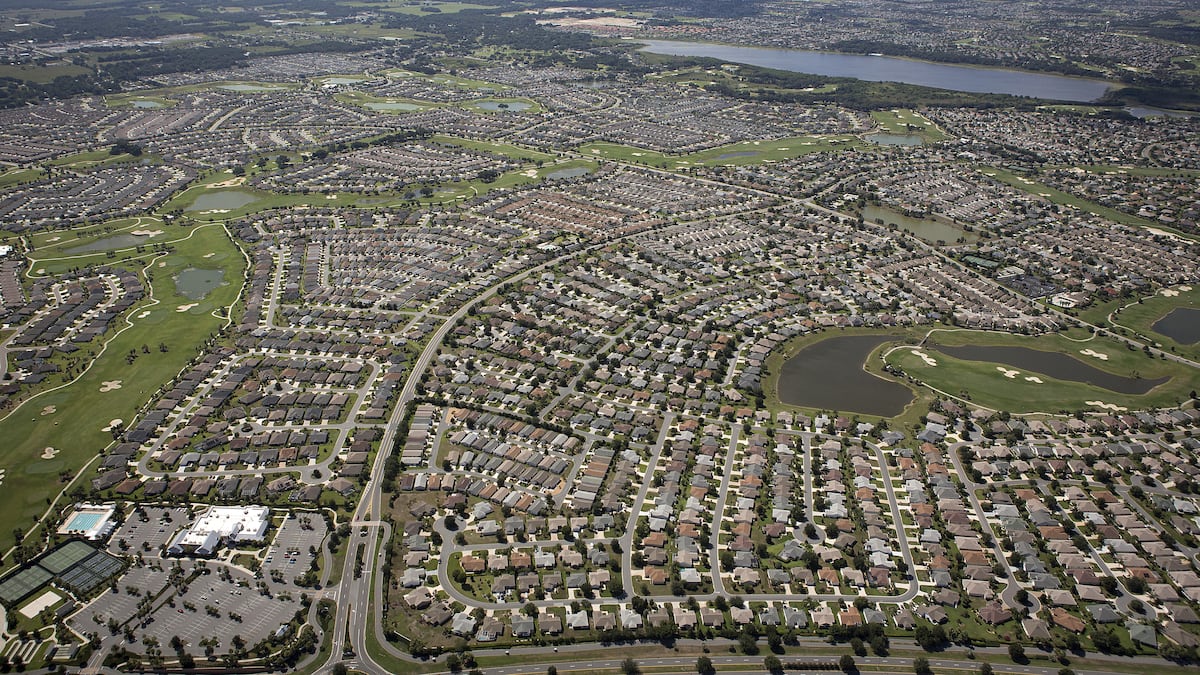Bark and Whispers: How Ancient Trees Might Unravel a Centuries-Old Roman Mystery
Environment
2025-04-29 09:50:00Content

Ancient tree-ring evidence is shedding new light on the dramatic decline of Roman Britain, revealing how prolonged drought may have contributed to the civilization's downfall. Researchers analyzing tree-ring data have uncovered compelling evidence that severe environmental challenges could have significantly weakened the Roman infrastructure and social stability during the later periods of their occupation.
The intricate rings of ancient trees serve as a natural climate archive, preserving a detailed record of environmental conditions spanning centuries. By carefully examining these rings, scientists can reconstruct historical climate patterns and understand how environmental stress might have impacted human societies.
In the case of Roman Britain, the tree-ring records suggest that extended periods of drought could have disrupted agricultural productivity, strained economic resources, and potentially accelerated the region's vulnerability to external pressures. This environmental perspective offers a fascinating new dimension to understanding the complex factors that contributed to the eventual collapse of Roman control in Britain.
These findings highlight the profound interconnection between climate and human civilization, demonstrating how environmental conditions can play a crucial role in the rise and fall of historical societies.
Unraveling the Climatic Collapse: How Drought Orchestrated the Downfall of Roman Britain
In the annals of historical transformation, few narratives are as compelling as the intricate dance between environmental challenges and human civilization. The story of Roman Britain's decline emerges not merely as a tale of political upheaval, but as a profound testament to nature's silent yet devastating power to reshape human destiny.When Climate Writes History: A Dramatic Revelation of Environmental Transformation
The Ecological Fingerprint of Imperial Decline
Tree-ring analysis has emerged as a groundbreaking archaeological technique, offering unprecedented insights into the environmental dynamics that potentially precipitated the collapse of Roman Britain. Researchers have meticulously reconstructed climatic patterns by examining the intricate growth rings of ancient trees, revealing a narrative far more complex than traditional historical accounts. The dendrochronological evidence suggests a prolonged period of severe drought that systematically undermined the agricultural and economic foundations of Roman settlements. These climatic disruptions were not merely temporary inconveniences but represented fundamental ecological transformations that challenged the very sustainability of Roman infrastructure and societal structures.Decoding Dendrochronological Evidence
Scientific investigations have uncovered remarkable correlations between tree-ring width variations and historical climate patterns. Each ring serves as a microscopic archive, capturing atmospheric conditions, precipitation levels, and temperature fluctuations with remarkable precision. By analyzing these natural records, researchers can reconstruct environmental conditions with an accuracy that traditional historical documents cannot provide. The narrowing of tree rings during specific periods indicates significant moisture stress, suggesting extended drought conditions that would have dramatically impacted agricultural productivity. These environmental constraints would have placed immense pressure on Roman agricultural systems, potentially triggering cascading socioeconomic challenges.Societal Vulnerability and Environmental Stress
Roman Britain's sophisticated yet fragile infrastructure was particularly susceptible to prolonged environmental disruptions. The intricate network of agricultural settlements, urban centers, and trade routes depended on consistent environmental conditions. Drought-induced agricultural failures would have triggered a domino effect, compromising food security, economic stability, and ultimately, social cohesion. The archaeological evidence suggests that these environmental challenges coincided with increasing external pressures from migrating populations and internal political fragmentation. The combination of climatic stress and geopolitical instability created a perfect storm that accelerated the region's transformation and eventual decline.Technological Limitations and Adaptive Challenges
Despite the Romans' renowned engineering prowess, their technological capabilities were ultimately limited in mitigating severe environmental challenges. Water management systems, while advanced for their time, could not comprehensively address prolonged drought conditions. The inability to develop robust agricultural adaptation strategies further exposed the vulnerability of Roman settlements. The tree-ring data provides compelling evidence that environmental constraints played a far more significant role in societal transformation than previously understood. It challenges traditional narratives that predominantly emphasized political and military factors in historical change.Broader Implications for Understanding Historical Transformation
This research transcends the specific context of Roman Britain, offering broader insights into the intricate relationship between environmental conditions and human societies. It underscores the profound interconnectedness of ecological systems and human civilization, demonstrating how climatic variations can fundamentally reshape social, economic, and political landscapes. The study serves as a powerful reminder of humanity's enduring vulnerability to environmental dynamics, presenting a nuanced perspective on historical resilience and adaptation. By integrating scientific methodologies with historical analysis, researchers continue to unravel the complex mechanisms that drive societal transformation.RELATED NEWS
Environment

Green Guardians or Industry Allies? Inside EPA's Bold Deregulation Stance
2025-04-21 18:58:12
Environment

Green Warriors: Local Volunteers Wage War on Pollution Along Keith Creek
2025-05-03 20:37:50






